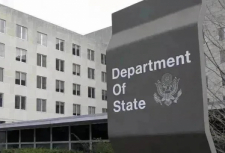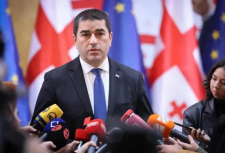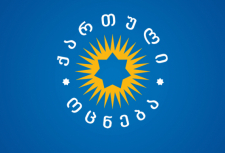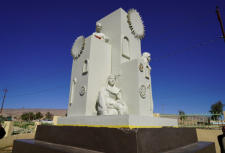Iraq's Yazidis call for autonomy as conflict heats up
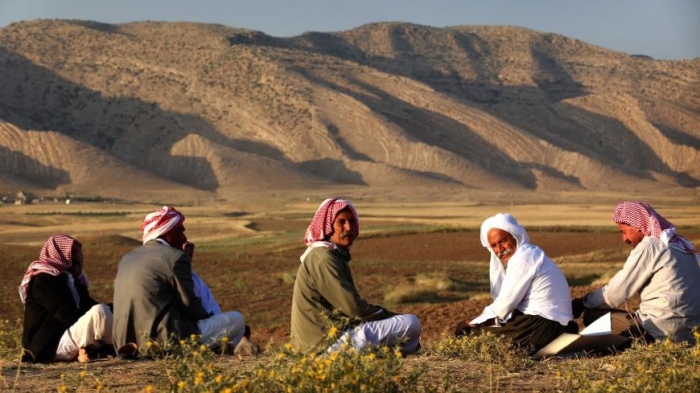
More than 40 leaders of the Yazidi community of Sinjar signed a petition demanding self-government in Sinjar, joining the Ezidxane Asayish security forces, and other demands related to the return of Yazidi refugees and displaced persons, services, and employment opportunities.
"Ezidxane Asayish" (Ezidhan Asayish) is a Yazidi police force in areas controlled by the Sinjar resistance units.
Over the past few days, the city of Sinjar, which is the subject of a dispute between Baghdad and Erbil, has become the scene of growing tensions between the Iraqi army and PKK supporters who oppose the entry of the Iraqi army.
The entry of the Iraqi Army is part of the Sinjar Agreement signed between the Government of Iraq and the Regional Government of Iraqi Kurdistan (KRG) on January 9, 2020, to normalize the situation in the area. The agreement was not attended by representatives of local Yazidis.
The Sinjar agreement has received international support, except for a circle of units close to the PKK and the Popular Mobilization Units (PMC).
According to the agreement, a new (prefect) must be selected for the Sinjar district by a joint committee and the governor of Nineveh, and other administrative positions must be considered by a joint committee formed by both sides (Kurdish and Iraqi).
The security section instructed the local police and national security and intelligence agencies to secure the area and withdraw all other armed groups from the area, as well as to appoint 2,500 security personnel as part of the internal security forces in Sinjar. Cease the presence of informal armed groups.
Factions close to the GUP, who had previously been trained by the PKK, refused to comply with the Sinjar Agreement and demanded to join forces with the security forces that would be formed, including Ezidhan Asayish, which includes more than 700 Yazidi residents of Sinjar.
Leaders who support self-government told Al-Monitor»:
"The Yazidi forces will be joined with the Iraqi security forces, as Sinjar is an Iraqi city. The agreement should have been between Sinjar and Baghdad, not between Erbil and Baghdad. The government is not able to find a solution that suits all parties. Sinjar deserves to become an independent district because of its geographical location. Other components in the area will benefit from this, but the issue of self-government or autonomy is not mentioned in the Iraqi Constitution. We support an early solution to the situation in Sinjar."
Mohammad Zangana, a member of the Kurdistan Democratic Party, said:
"Granting autonomy to Sinjar is illegal because they are not a political party in Iraq or Kurdistan. In addition, the international classification of this batch does not allow for such requirements."
According to the Office for the Rescue of Abducted Yazidis in Kurdistan and Iraq, about 60% of the residents of Sinjar, which is the last area where Yazidis live in Iraq, have not returned due to political disputes over the area.
Source Ezdina
Tags:
Iraq's Yazidis call for autonomy as conflict heats up

More than 40 leaders of the Yazidi community of Sinjar signed a petition demanding self-government in Sinjar, joining the Ezidxane Asayish security forces, and other demands related to the return of Yazidi refugees and displaced persons, services, and employment opportunities.
"Ezidxane Asayish" (Ezidhan Asayish) is a Yazidi police force in areas controlled by the Sinjar resistance units.
Over the past few days, the city of Sinjar, which is the subject of a dispute between Baghdad and Erbil, has become the scene of growing tensions between the Iraqi army and PKK supporters who oppose the entry of the Iraqi army.
The entry of the Iraqi Army is part of the Sinjar Agreement signed between the Government of Iraq and the Regional Government of Iraqi Kurdistan (KRG) on January 9, 2020, to normalize the situation in the area. The agreement was not attended by representatives of local Yazidis.
The Sinjar agreement has received international support, except for a circle of units close to the PKK and the Popular Mobilization Units (PMC).
According to the agreement, a new (prefect) must be selected for the Sinjar district by a joint committee and the governor of Nineveh, and other administrative positions must be considered by a joint committee formed by both sides (Kurdish and Iraqi).
The security section instructed the local police and national security and intelligence agencies to secure the area and withdraw all other armed groups from the area, as well as to appoint 2,500 security personnel as part of the internal security forces in Sinjar. Cease the presence of informal armed groups.
Factions close to the GUP, who had previously been trained by the PKK, refused to comply with the Sinjar Agreement and demanded to join forces with the security forces that would be formed, including Ezidhan Asayish, which includes more than 700 Yazidi residents of Sinjar.
Leaders who support self-government told Al-Monitor»:
"The Yazidi forces will be joined with the Iraqi security forces, as Sinjar is an Iraqi city. The agreement should have been between Sinjar and Baghdad, not between Erbil and Baghdad. The government is not able to find a solution that suits all parties. Sinjar deserves to become an independent district because of its geographical location. Other components in the area will benefit from this, but the issue of self-government or autonomy is not mentioned in the Iraqi Constitution. We support an early solution to the situation in Sinjar."
Mohammad Zangana, a member of the Kurdistan Democratic Party, said:
"Granting autonomy to Sinjar is illegal because they are not a political party in Iraq or Kurdistan. In addition, the international classification of this batch does not allow for such requirements."
According to the Office for the Rescue of Abducted Yazidis in Kurdistan and Iraq, about 60% of the residents of Sinjar, which is the last area where Yazidis live in Iraq, have not returned due to political disputes over the area.
Source Ezdina
Tags:

